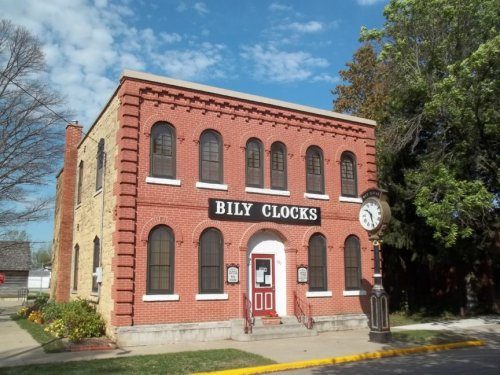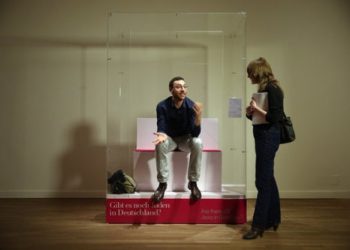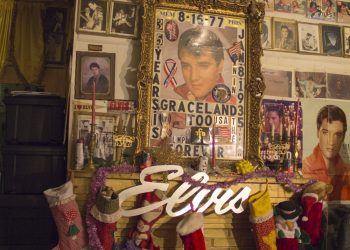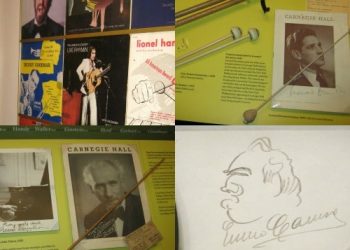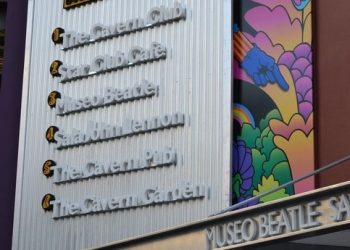This has probably been the fastest March I’ve ever lived through in my life. The more time you waste, the more you lose…or something like that. Anyway, I’m sure time moves pretty slow in Spillville, Iowa. It’s home to the Bily Clocks Museum, an old brick building dedicated to the clock collection created by two Bohemian bachelor farmer brothers. With nothing better to do, they carved clocks every winter for over 50 years. Most of the items are huge, made of different woods like walnut, butternut, maple and oak and fully animate with figures and built-in music boxes. One such piece, the Apostle Clock, built between 1915 and 1916, has the Twelve Apostles appear on the hour. Even though they never traveled farther than 35 miles from home, their clocks have advanced themes, like The Seven Stages of Man from Shakespeare’s As You Like It and Father Time hanging out with Quaker activist Elizabeth Fry, philosopher Emanuel Kant, and playwright Henrik Ibsen. During the period of 1923-1927, the Bily Brothers added their masterpiece to the collection, the American Pioneer History Clock, which is over eight feet high and weighs more than 500 pounds. It’s a memorial to the aviator Charles Lindbergh’s historic flight. Henry Ford offered the brothers over a million dollars for the clock in 1928. They respectfully declined and later bequeathed their works to the city of Spillville with the stipulation it must never be sold or separated. The second floor has an exhibit dedicated to the famous Czech composer, Antonin Dvorak, who happened to live in the building with his family during the summer of 1893. And that’s all I got, folks…I’ve run out of time.
